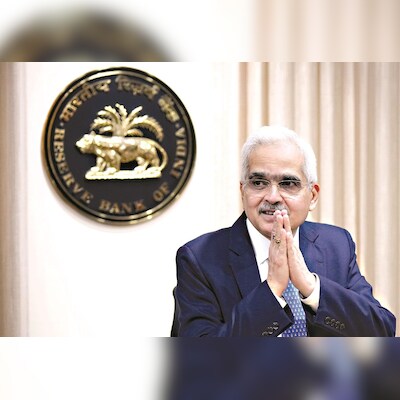[ad_1]
Reserve Bank of India Governor Shaktikanta Das on Tuesday ruled out any possibility of a reduction in the policy repo rate due to fall in headlineinflation below the target in July, as it was mainly due to the effect of a higher statistical base.
In an interview with television channel NDTV Profit, Das said it would be a mistake to react to a one-off event and RBI needs to wait for inflation to fall to the target of 4 per cent, on a durable basis.
“We are saying durable alignment of inflation to the target. Alignment means it should be around 4 per cent. And it should not be one off. Like, July inflation was 3.5 per cent…it does not mean the problem is over,” Das said.
“It (July inflation) was primarily because of base effect, our approach if it should be around 4 per cent and we should be confident about the durability. To react to one off events could be a big policy mistake.”
The six-member monetary policy committee of the RBI kept the policy repo rate unchanged at 6.5 per cent since February 2023. The central bank has refused to drop its guard mainly due to higher food inflation.
“We have to be patient, there is some distance to cover,” he said.
Das also said it would not be prudent to target inflation excluding food– an idea which was mooted by the economic survey.
“We need to bring down inflation. If we remove vegetable prices or food prices, it won’t be credible in the mind of the common people. That is why food inflation is an important component of headline inflation,” he said.
“Currently, we are confident that inflation is trending downward and should reach the target of 4 per cent. Having said that, our estimate is that the average inflation this fiscal will be 4.5 per cent because of uncertainties.”
Das also ruled out any growth sacrifice due to RBI’s tight stance for more than a year.
“So far as growth sacrifice is concerned, it is minimal… na hone ka barabar hain,” Das said.
The questions and responses of the interview were mostly in Hindi.
“This year we have projected 7.2 per cent growth and India will remain the fastest growing economy in FY25. So growth sacrifice, according to us, is not much. Growth remains intact, it is stable and resilient,” he said.
He reiterated that there could be structural liquidity issues if the persistent gap in credit and deposit growth is not addressed by the banks.
“We are cautioning banks to carefully monitor. Right now there is no problem but in the future it could be a structural liquidity issue. If the gap between credit and deposit growth continues, if it becomes persistent, then it can create liquidity issues,” he said, adding banks need to be very careful about dealing with liquidity management and that there is a need for a balance in credit and deposit growth.
He said credit disbursement has been fast due to technology but deposit mobilisation is still physical.
In this context, he lauded banks’ effort to raise funds by issuing infrastructure bonds.
“One positive thing is, banks are raising funds via infra bonds. The good thing about infra bonds is that they are getting it at a very attractive rate. There are no reserve requirements. Many banks are raising infra bonds to finance infra projects which is a good thing,” he added.
First Published: Aug 20 2024 | 8:49 PM IS
[ad_2]
Source link

